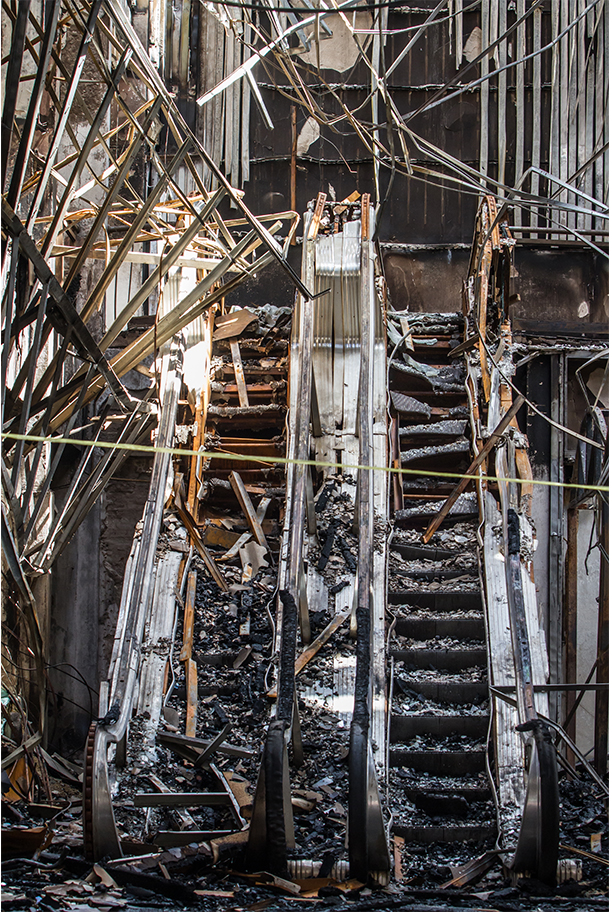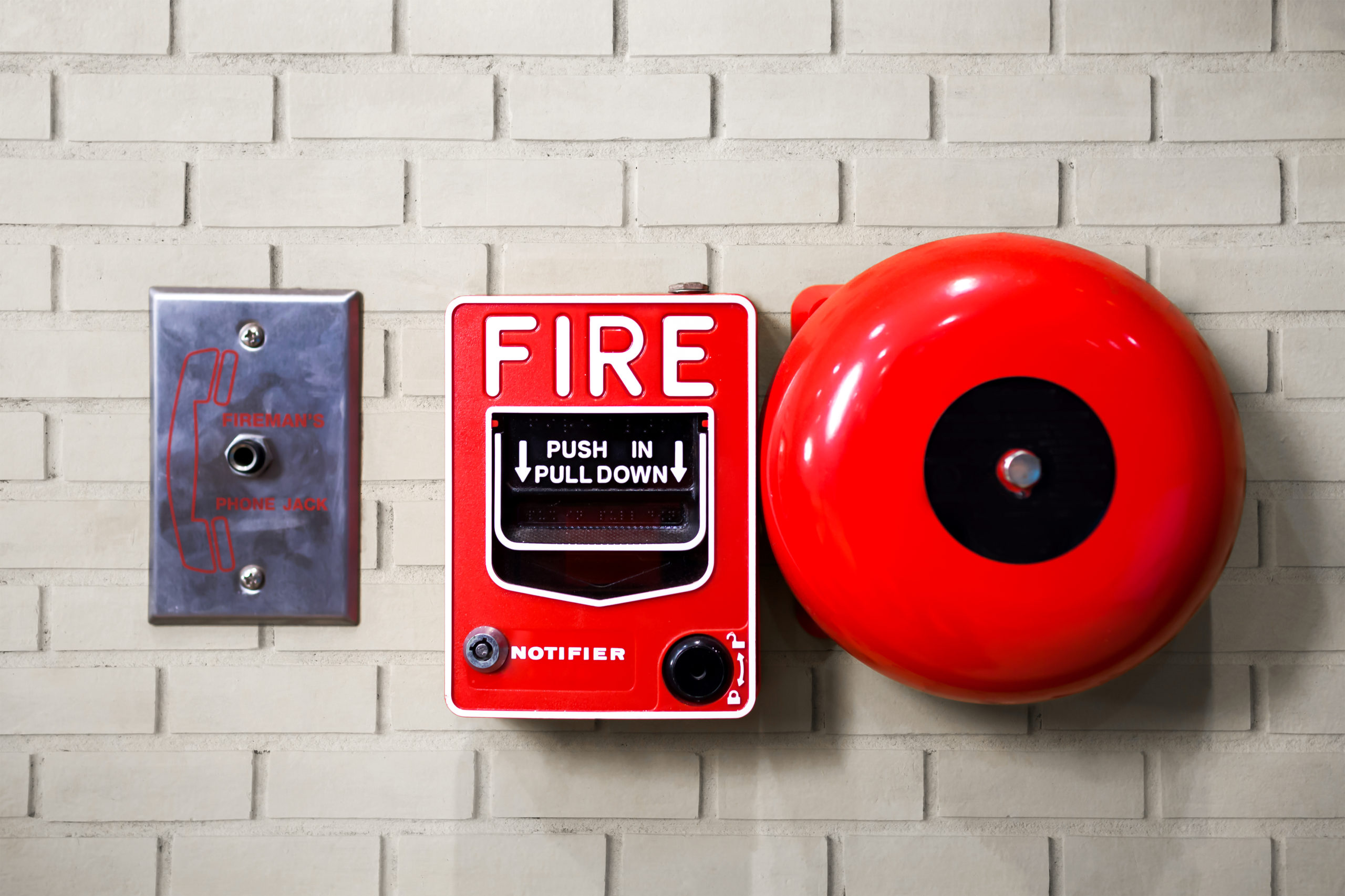We all know a business fire is devastating. However, even a minor fire can significantly impact a business.
A few years back, a small fire broke out in a tenancy located in an older commercial building. Thankfully, fire services responded quickly in the early hours of the morning, containing the fire with minimal physical damage to five other business tenants.
Nonetheless, the entire building suffered extensive smoke damage. Thus, all tenants lost 1-2 weeks of income while the property was made safe and thoroughly cleaned. However, there was a further 3-month impact on trading during the replacement of the old roof trusses.
So, it’s not just the rebuild and reinstatement timeframes a business should consider following a fire. Other factors may also include:
- the physical and mental health impacts on staff
- reputational damage following the loss of life or severe injuries
- time delays in replacing essential or specialist plant and equipment
- time spent dealing with insurance claims and attending court cases and investigations
- environmental damages including impact on cultural heritage
- fines and penalties
Here are 5 ways to mitigate and protect your livelihood from the financial and secondary effects of a business fire.

Fires within a business can have major implications that can go beyond damage to buildings and stock.
1. Establish a Fire Safety & Evacuation Plan
You can reduce the risks of injury and the impact to staff by establishing a Safety & Evacuation Plan that you review and update annually. It should provide clear information, such as:
- What to do in the event of a fire
- Where to gather in the event of an evacuation
- When and how to leave the building
- Identify the persons in charge during emergency situations
- An Emergency Kit which includes items, such as:
- Spare laptop/mobile phone, chargers & batteries
- Emergency phone numbers beyond 000 including electricity, gas, water & telecommunications companies; staff next of kin; insurance company details.
- First aid kit & manual
- Fresh water
- Digital or physical copy of vital business records including insurance policies, financial records, key supplier & customer details
- Details of latest stock & equipment inventory, including photos of, or receipts for, equipment if applicable
- Spare keys for buildings, vehicles & equipment
- Hardcopy of your disaster recovery plan
- A fire safety training schedule for all staff

Does your business have an evacuation plan in place?
2. Prepare a Disaster Recovery Plan
The best way to maintain cash flow after a business fire is to plan and evaluate your risks before disaster strikes. Therefore, a Disaster Recovery Plan will place your business in a stronger position should a business fire or other emergency occur.
The act of preparing the plan will help you develop a clear understanding of what the business must do to minimise disruption for staff, customers and more. While we know every business is unique, the main items to consider when building a disaster recovery plan are:
- The type and severity of all potential business risks,
- The resources the company will need to keep going, where to find them and their availability,
- 2-3 commercial buildings the business can use as temporary or permanent premises
- A budget and cashflow plan to support the business in the event of a disaster
- The business needs following major and smaller partial loss scenarios
- A plan to manage business data and data recovery
- A communication plan that sets out how, when and what you will communicate to staff, customers and suppliers regarding working arrangements, temporary premises, new contact details, customer orders or other contractual obligations.

Always have a backup plan in case a devastating event occurs to your business.
3. Purchase Quality Business Interruption/Loss of Profits Insurance
Not all insurance covers are equal. However, you can protect your business interests by setting accurate sums insured and sub-limits, for instance.
Importantly, there are other factors you can consider. So, for insurance cover, consider:
- Purchasing a minimum of 12 months indemnity cover or 24 months if you own the building
- Insuring your gross trading profit, not gross accounting profit
- Purchasing 100% cover for wages to help retain staff to avoid additional recruitment and training costs
- Including an additional 10% of your gross profit sum insured to cover any increases in operating costs
- Using forecast or budget financial data to set accurate sums insured and avoid underinsurance
- Including the costs of hiring specialist advice in the event of a claim, such as a specialist accountant or legal counsel
Insurance brokers are experts in insurance, so they can work with you to understand your business operations and advise on the most appropriate risk and insurance solutions for your needs. Brokers can guide you to professionals that can determine the insurance replacement values of your property and other assets to set accurate sums insured and sub-limits.
4. Consider Management Liability Insurance
It’s advisable for any sizeable business to purchase a degree of Management Liability insurance. Although its primary purpose is to provide personal indemnity to directors and officers for their day-to-day management decisions, it can also cover:
- Management time spent dealing with investigations or court proceedings following a business fire or workplace health and safety enquiry
- Legal defence and reputation protection costs that may arise due to an investigation or claim against the business or its directors
- Fines and penalties that may result due to a fire or workplace injury
Insurance brokers take into account your financial and business circumstances to advise on the most appropriate level of Management Liability insurance for your needs.
5. Retain the services of a qualified Risk and Insurance Broker
Risk and insurance brokers, like Clear Insurance Advisers, are experts in risk and insurance. They understand the market and the specific needs of different businesses and industries. Therefore, they can work with you to build your understanding of business risk and help you to decide whether to keep, mitigate or transfer your business risks to insurance.
Clear Insurance Advisers advocate for your business, helping you to negotiate, manage and expedite insurance claim settlements.
For peace of mind, book a risk and insurance review to see how your current insurance program stacks up against your business risks.
Contact Clear Insurance today for a chat.
General Advice Warning: This advice is general and does not take into account your objectives, financial situation or needs. You should consider whether the advice is appropriate for you and your personal circumstances. Before you make any decision about whether to acquire a certain product, you should obtain and read the relevant product disclosure statement.
Clear Insurance Pty Ltd. ABN 41 601 916 689. AFSL No. 548953.





